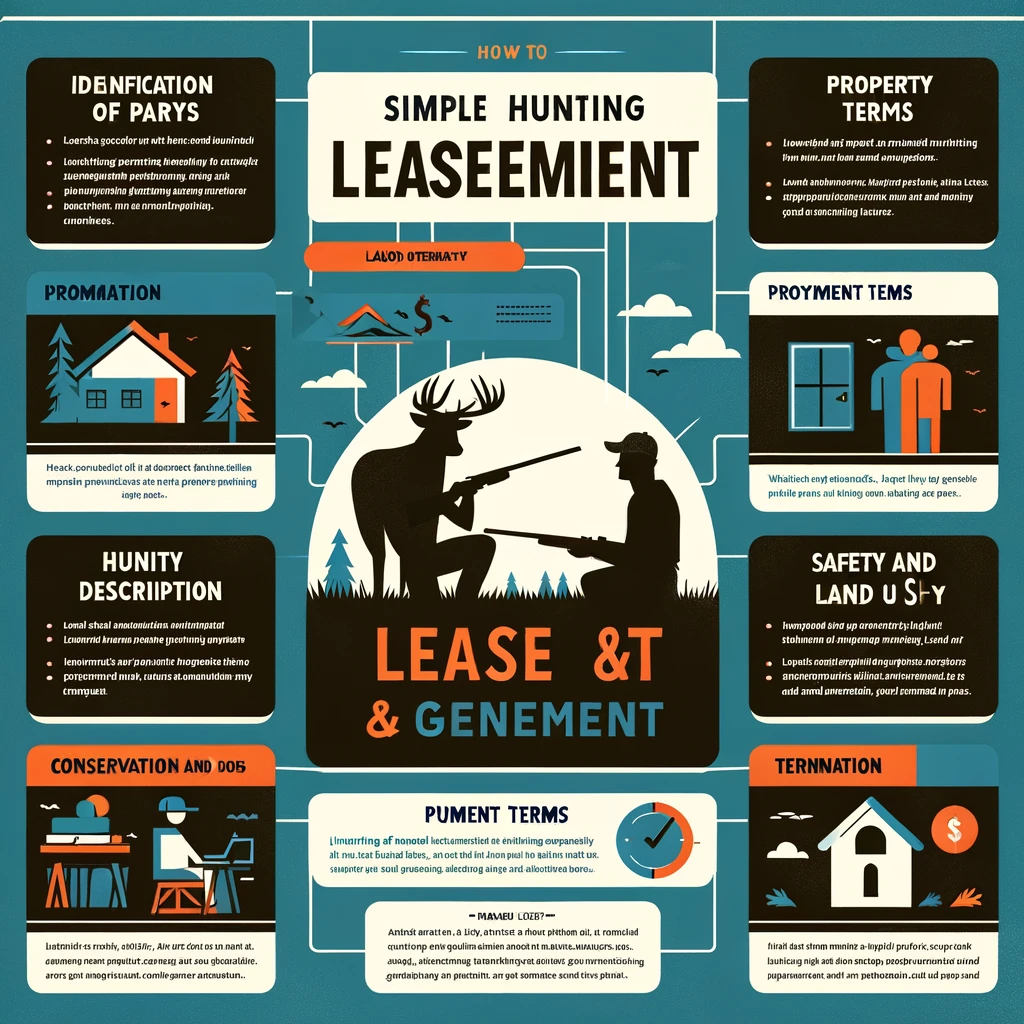Crafting a Simple Hunting Lease Agreement: A Comprehensive Guide
In the vast and varied landscape of outdoor recreational activities, hunting leases stand out as a pivotal element in ensuring responsible wildlife management and property use. A simple hunting lease agreement serves as a foundational document that outlines the terms under which hunters can access and utilize a landowner's property for hunting purposes. This comprehensive guide delves into the intricacies of drafting a simple hunting lease agreement, highlighting key components, legal considerations, and best practices, enhanced with references to authoritative .gov, .edu, and Wikipedia links for added credibility.

Understanding Hunting Lease Agreements
A hunting lease agreement is a contract between a landowner and one or more hunters, granting them the right to hunt on the landowner's property for a specified period in exchange for payment or other compensation. These agreements not only provide income opportunities for landowners but also contribute to wildlife conservation efforts by regulating hunting activities.
Legal Framework
The legal framework for hunting leases varies by state but generally encompasses property law, contract law, and wildlife conservation regulations. It's crucial for both landowners and hunters to familiarize themselves with state-specific regulations governing hunting leases, which can be found on state wildlife agency websites or through educational resources such as the National Agricultural Law Center.
Crafting a Simple Hunting Lease Agreement: Key Components
Identification of Parties
Clearly identify all parties involved in the agreement, including the landowner(s) and the hunter(s) or hunting group.
Description of the Leased Property
Provide a detailed description of the property being leased, including boundaries and specific areas where hunting is permitted.
Term of Lease
Specify the start and end dates of the lease period, including any provisions for renewal.
Payment Terms
Outline the lease payment amount, due dates, and acceptable payment methods. Include details on security deposits, if applicable.
Hunting Rights and Restrictions
Define the types of game that can be hunted, acceptable hunting methods, and any restrictions on hunting equipment or techniques. Reference state wildlife conservation laws to ensure compliance, as seen on sites like Wikipedia.
Safety and Liability
Address safety requirements, including the use of hunter orange and adherence to state hunting regulations. Include a liability waiver or indemnification clause to protect the landowner from claims arising from hunting activities.
Conservation and Land Use
Incorporate clauses that promote conservation efforts and specify permissible and prohibited activities on the property to prevent habitat damage.
Termination Conditions
Specify conditions under which the lease may be terminated, including breach of agreement terms and payment delinquencies.
Best Practices for Landowners and Hunters
Landowners:
Conduct Due Diligence: Verify the credentials and hunting history of potential lessees.
Consult Legal Advice: Work with an attorney to ensure the lease agreement complies with state laws and adequately protects your interests.
Regular Inspection: Schedule regular inspections of the property to ensure compliance with the lease terms.
Hunters:
Understand Your Responsibilities: Fully comprehend all terms of the lease agreement, including restrictions and safety requirements.
Insurance: Consider obtaining hunting liability insurance to cover potential accidents or damages.
Respect the Property: Follow all conservation guidelines and land use restrictions to maintain a positive relationship with the landowner.

Create & Review Your Contracts 10x Quality and Ease
Lawyer-level AI handles all your contract needs, with real lawyers providing safeguarding support

Navigating Disputes
Disputes over hunting lease agreements can arise from misunderstandings or non-compliance with lease terms. Effective communication and mediation can often resolve conflicts. However, it may be necessary to seek legal resolution for more serious disputes.
Conclusion
Simple hunting lease agreements play a critical role in managing hunting activities on private lands, benefiting both landowners and hunters. By carefully drafting and executing these agreements, parties can ensure a mutually beneficial arrangement that promotes responsible hunting practices, wildlife conservation, and land stewardship. For more detailed information and legal templates, consulting with a legal professional or exploring resources from gov and edu websites can provide additional guidance.

